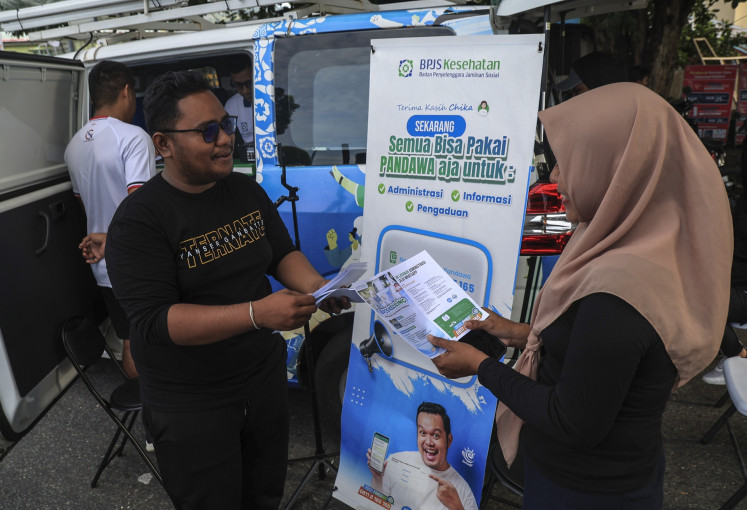Popular Reads
Top Results
Can't find what you're looking for?
View all search resultsPopular Reads
Top Results
Can't find what you're looking for?
View all search resultsAre we ready for AI research in Indonesia?
Indonesia's research funding is significantly lower than global averages.
Change text size
Gift Premium Articles
to Anyone
T
he Artificial Intelligence Action Summit, hosted by France this week, brought together leaders of state and government, international organizations, CEOs from both small and large companies, representatives from academia, non-governmental organizations, artists and members of civil society. Also this week, UNESCO released the Indonesia – Artificial Intelligence Readiness Assessment Report.
Indonesia is the first country in the Southeast Asian region to take this assessment, a bold move that is expected to provide comprehensive evaluation and recommendation to strengthen its AI governance framework. The report should ideally emphasize the importance of ethical governance, establish a national AI agency to oversee policy coordination and guarantee equitable access to AI resources and education throughout the nation.
One key aspect in the report is that Indonesia's research funding is significantly lower than global averages. Currently, research funding in Indonesia stands at about 0.2 percent of its GDP, while the global average is around 2 percent. This indicates a substantial gap in investment in research and development compared with many other countries, which could impact the country's ability to advance in artificial intelligence and technology.
However, the report also highlights that AI research in Indonesia has been gaining momentum in recent years, driven by the efforts of academic institutions, government initiatives and private sector innovation. While we are not yet a global leader in AI, we have made significant strides in leveraging AI to address local challenges and contribute to global advancements.
The economic effects of AI are significant. According to a 2017 report by PricewaterhouseCoopers (PwC), AI has the potential to add as much as US$15.7 trillion to the global economy by 2030. In Southeast Asia, AI is expected to increase the regional GDP by 10-18 percent, which translates to an approximate value of $1 trillion.
In Indonesia, the potential of AI is particularly substantial. A report from 2020 indicated that if AI is developed and utilized effectively, it could account for 12 percent of Indonesia's GDP, equating to $366 billion by 2030. Based on these projections, Indonesia seeks to harness AI as a crucial engine for economic growth, in line with its vision for Golden Indonesia 2045.
According to a report from Microsoft and LinkedIn, by 2024, 92 percent of knowledge workers in Indonesia are expected to use generative AI in their jobs, exceeding the global average of 75 percent and the Asia Pacific average of 83 percent. This is a promising situation.



















